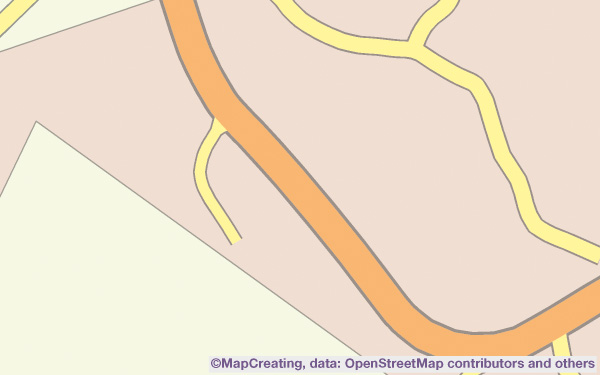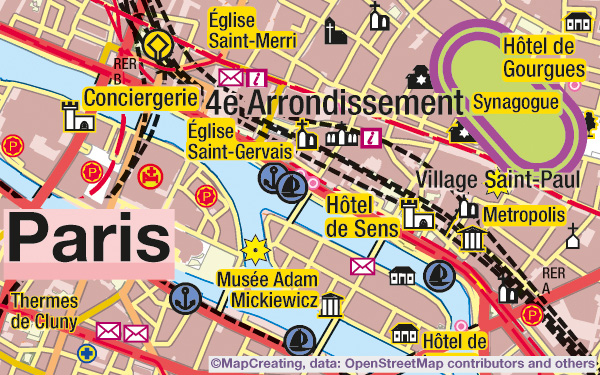MapCreating process Inclusivity
When we were preparing the concept of automatic map generation a few years ago, the word inclusivity was not yet as popular as it is today. Nevertheless, even then we saw the need to provide access to maps for all people in accordance with the values hidden behind this concept. We currently believe that our website – to the extent possible, the generation process, and most of all – the target product, i.e. the digital map, meet these criteria.
Below you will find a list of aspects of the MapCreating service that to a greater or lesser extent meet the conditions of inclusivity.
Value: Origin
The center of my World map is where I live
World maps can be generated in 3 variants of the central meridian, i.e. for an American, the continent of both Americas will be in the center of the map; a Vietnamese citizen can choose a map with Asia, Australia and Oceania in the center; an African and a European can also see their continent in the center.

My territory is shown without distortion
The geographic projection is always adjusted to the selected region on Earth. In popular online portals, authors use a single projection, not paying attention to the fact that they distort many areas, an example of which is Greenland, which is 5 times larger than India. In MapCreating, we make sure that regions are shown proportionally.

My little country is also visible
We provide maps not only for the continents, but also for the oceans. That is, there are also maps focusing on nations living in the middle of the oceans, usually not included on maps of continents or countries or microscopically shown on a world map.
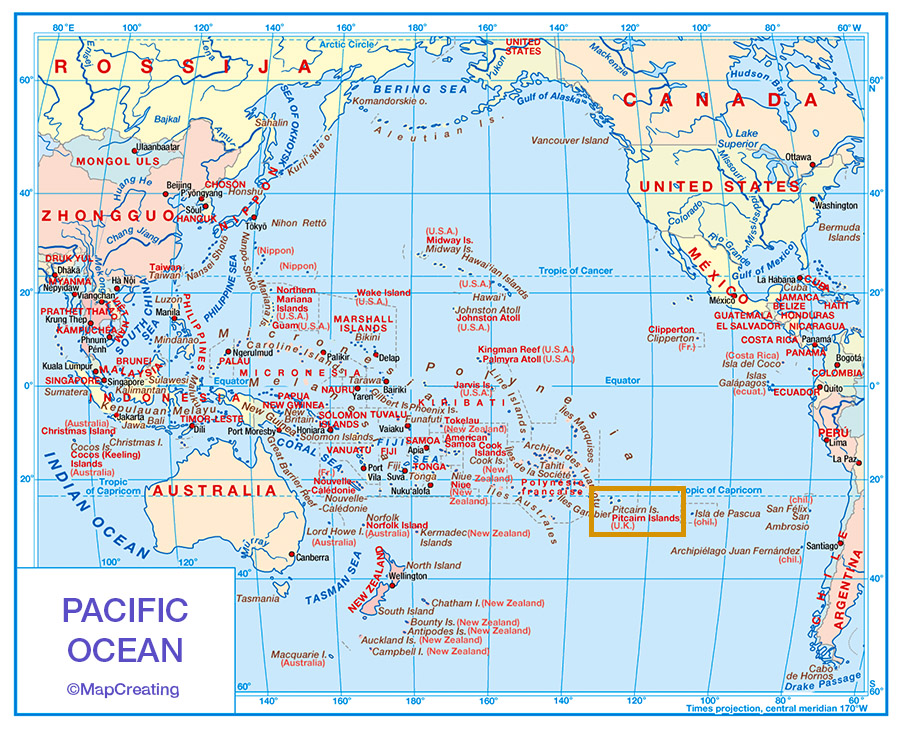
In the examples I can find my region
Examples of maps in the gallery, also free maps, are from all over the world, not only from the U.S.A. or Europe. In this way, we emphasize that all regions are equally important.
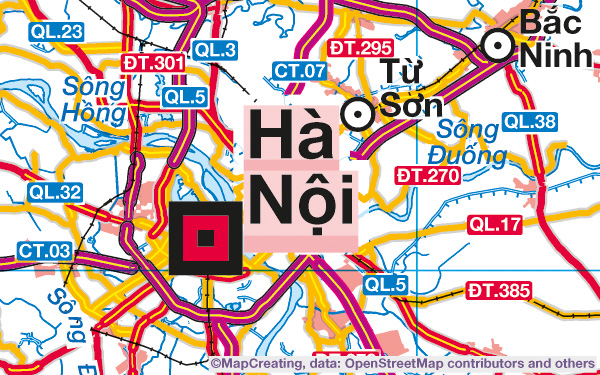
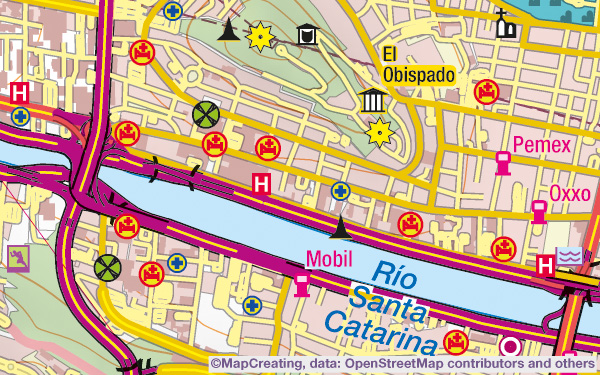
The more famous ones are not more important than the less famous ones
In the samples of maps in the gallery, for the names of towns or regions, we always add the name of the country, even if they are locations as well-known to everyone as New York.
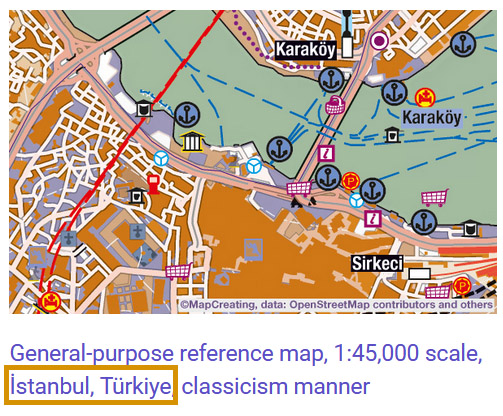
Value: Identity, Promotion of diversity
There are names of my small homeland in my language
In the process, we promote names that respect national identity, e.g. the name of China is in Chinese, i.e. Zhongguo, and not in English – China; the name of Egypt is Miṣsr; Georgia is Sakartvelo. These are so-called endonyms, we use them for all names, i.e. streets, towns, rivers, peaks, etc.
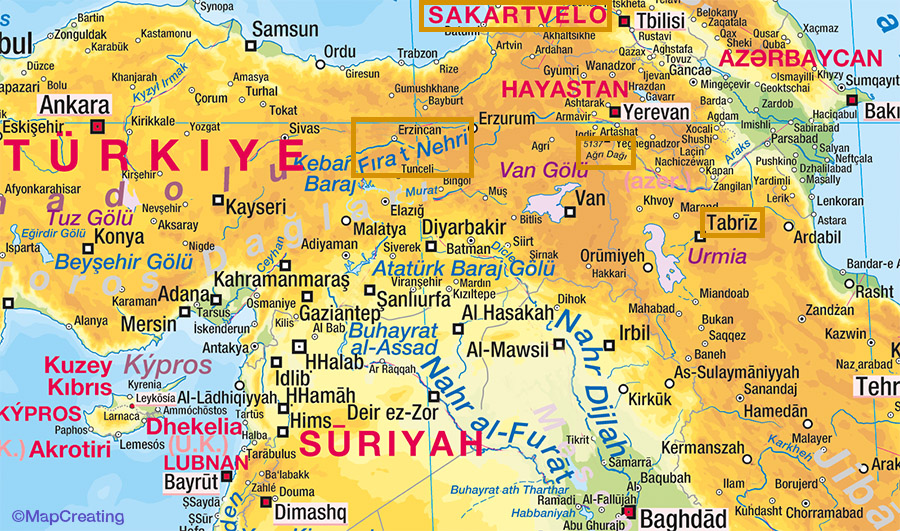
Everyone is able to read the names in my region
The names are in Latin transliteration/ Romanized, to be accessible to those who do not know other alphabets. Often, you can find the names written in the original alphabet only, readable only by the inhabitants of this country and hardly anyone else. Sometimes, there are names in the original alphabet and Latin transliteration, but for larger objects only. In our case, transliteration is complete.
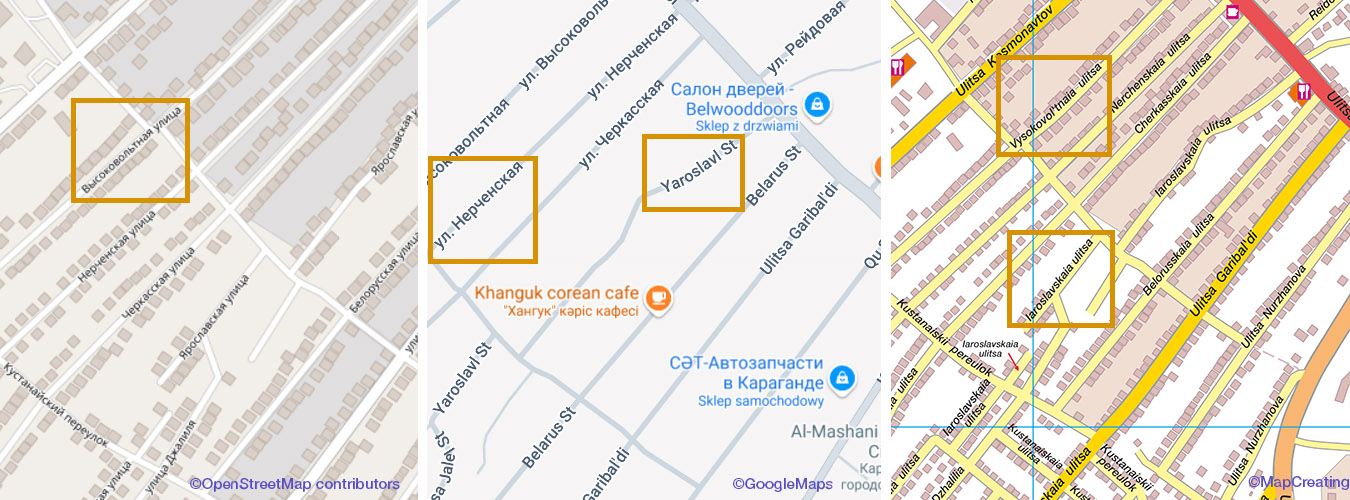
The explanation of the signs is understandable to everyone
There is a legend in 4 of the 10 main Latin and Cyrillic languages, instead of English only. The signatures can therefore be described in, among others, Turkish, Dutch, Ukrainian, etc.
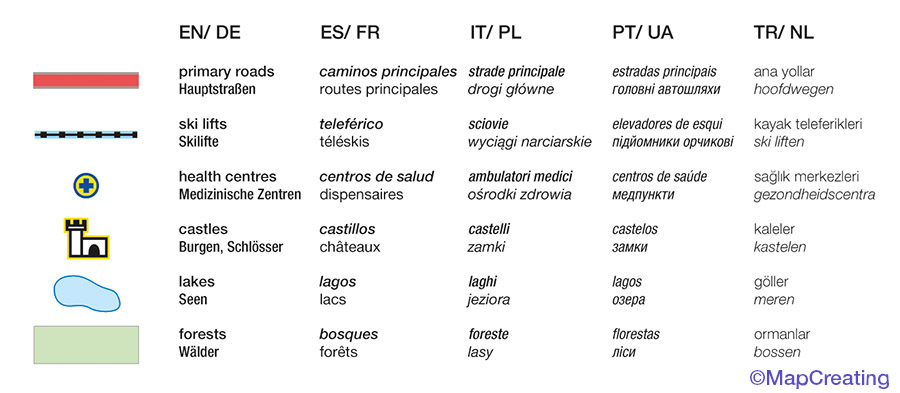
The map is more similar to those used in my country
As part of the graphics styling, the user can choose one of the national manners. It takes into account the features characteristic of the several decades of cartographic tradition of a given country, e.g. a specific color for roads or buildings, the shape of the object symbol – POI, the color for descriptions of monuments, etc. In the era of scalable map portals, made available in uniform graphics for everyone in the world, we would like to remind you of the diversity that characterized maps published in different countries not so long ago.
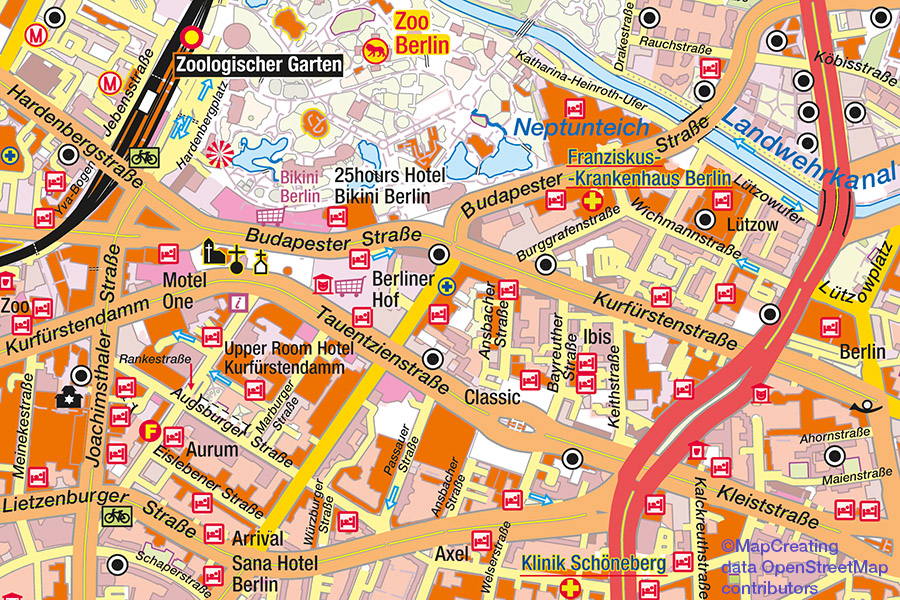
Among the many denominations I can also find mine
We show temple symbols depending on the denomination – about 15, e.g. on the map of Mumbai there are 8 different temple symbols. In this way, we try to respect religious identity, but not by generalizing the term as a temple or place of worship, but by indicating a specific denomination – if possible.
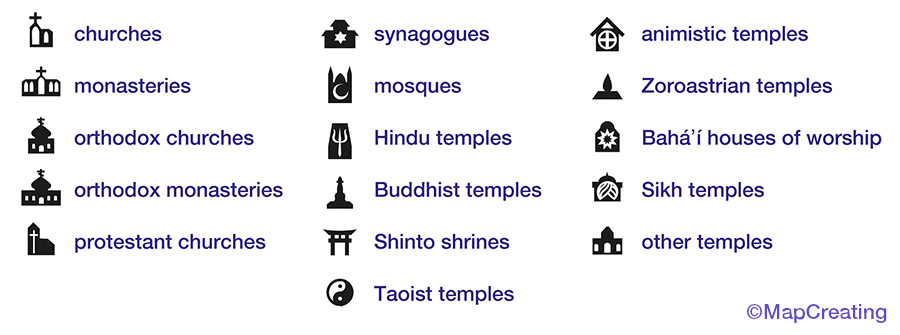
Value: Abilities, Elimination of barriers and discrimination
Even though I have poor eyesight in everyday life, I will find a map that I can use
Visually impaired people can choose specially adapted maps, in so-called contrast manner. They have not only intense colors, but also enlarged signatures and wider lines.
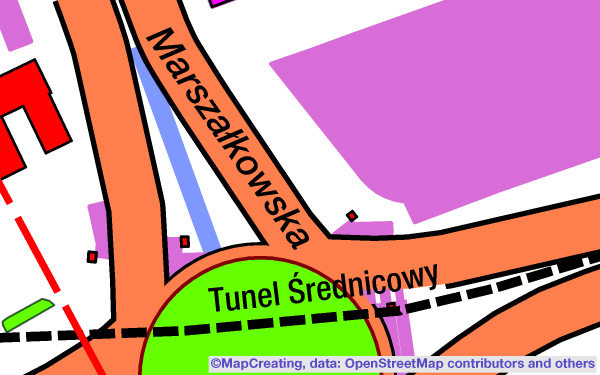
I will find legible map for myself
If you want to use maps in different conditions, read from a greater distance, you can choose a graphic style in 1 of 4 symbol size ranges. Symbols can be enlarged up to 5 times.
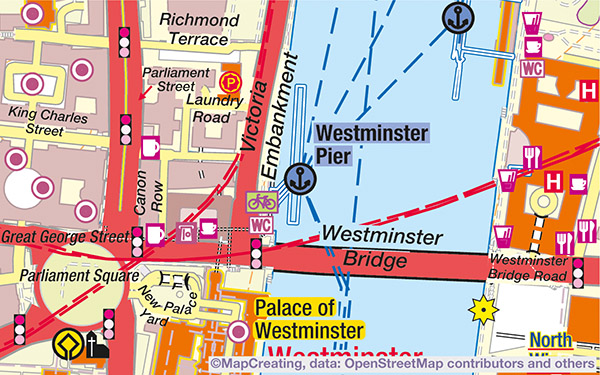
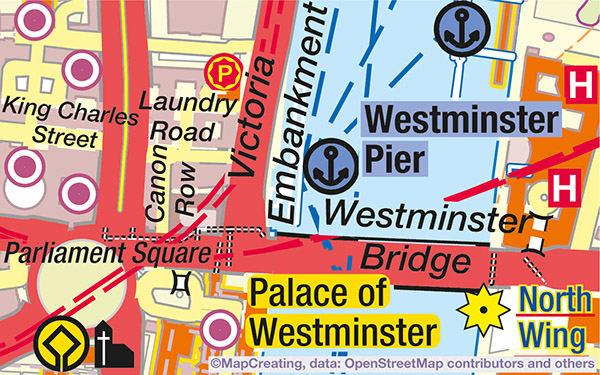
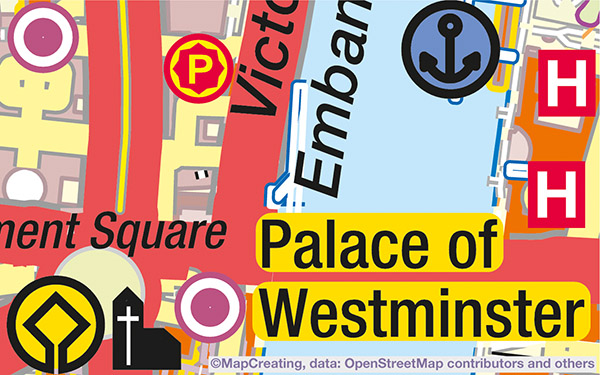
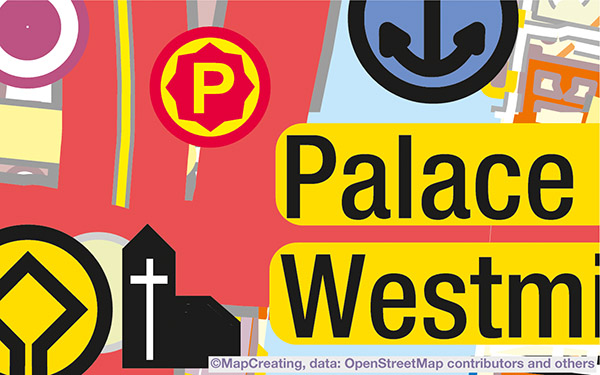
I can understand what I read and watch
The website is accessible, uses simple language and large, legible graphics.
When I help others – I don't have to pay
Maps for humanitarian purposes are free of charge.
I know immediately how widely I may use the map
Legal texts of the licence have an additional, simplified form, human readable, because not everyone understands legal texts; but some issues are important and should be presented in an accessible way.
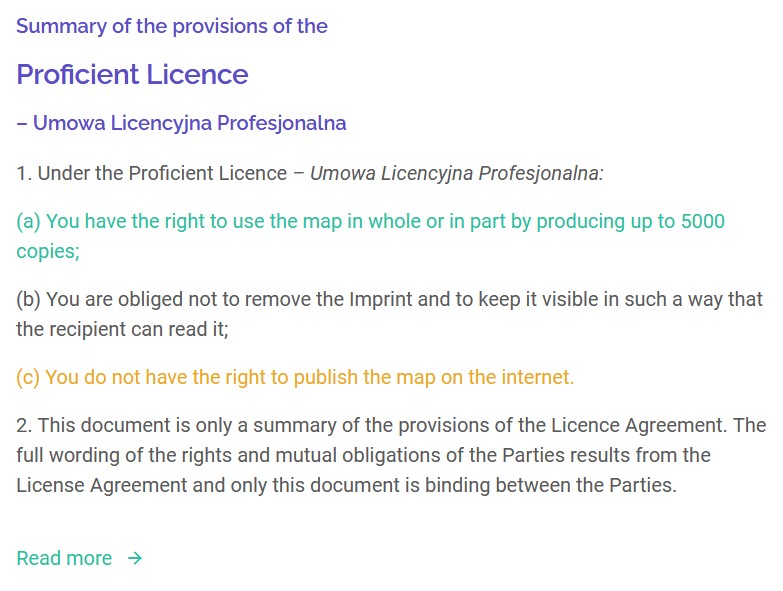
I won't be left without assistance when I don't understand something
The Support section contains a set of special tips that make it easier for unfamiliar readers to use classic maps.
Value: Gender
The text is addressed to everyone
We use collective, neutral or impersonal forms, instead of feminine and masculine forms.
Value: Social characteristics
I can afford a map because the price-benefit ratio is good
Map prices are adjusted to everyone’s capabilities, depending on the region of the world in which they live and from which they usually generate maps. We don’t want less affluent people to have to pay the same for maps – which often contain less information, than wealthier people – who usually generate maps from more densely edited areas.
